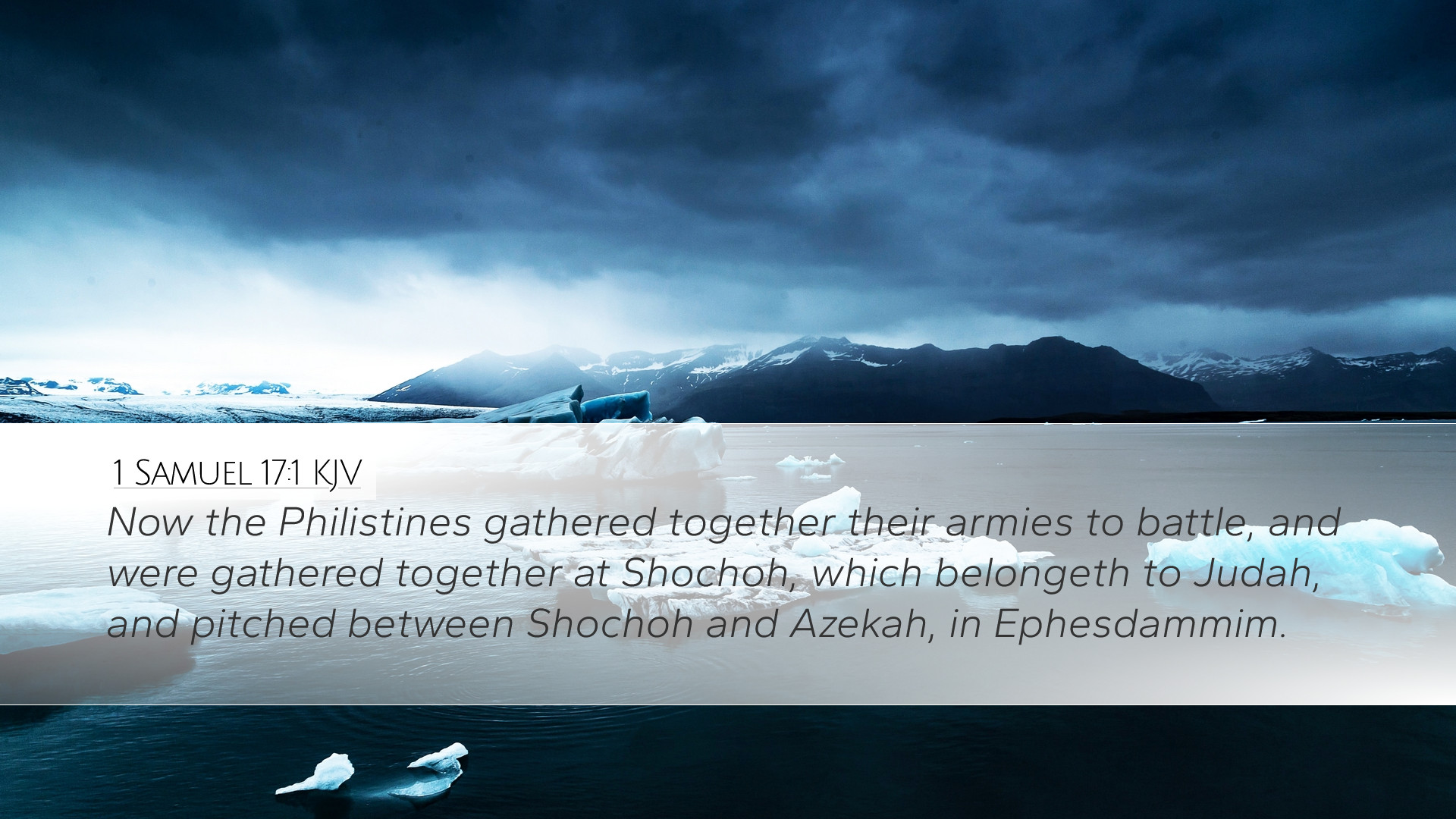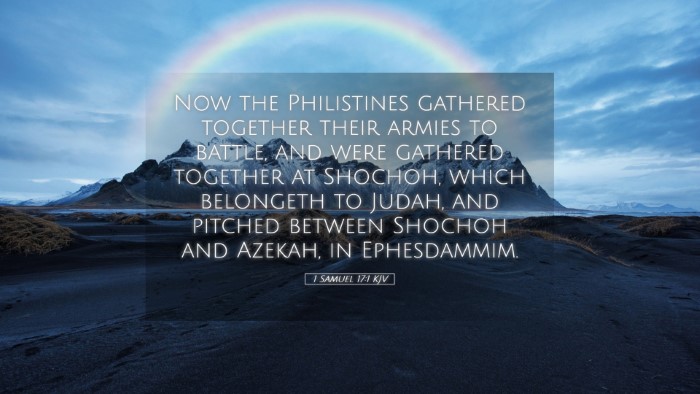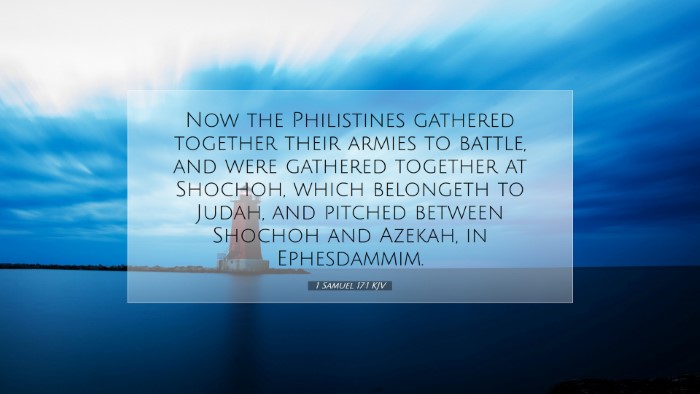Commentary on 1 Samuel 17:1
Introduction
1 Samuel 17:1 marks the beginning of one of the most well-known narratives in the Bible—the confrontation between David and Goliath. This passage sets the stage for understanding not only the valor of David but also the theological implications of trust in God amidst overwhelming odds.
Verse Context
1 Samuel 17:1 (KJV): "Now the Philistines gathered together their armies to battle, and were gathered together at Shochoh, which belongeth to Judah, and pitched between Shochoh and Azekah, in Ephes-dammim."
In this brief verse, several key elements are introduced that allow for deeper reflection on the text. The gathering of the Philistines for battle reveals both the tension between Israel and its enemies and the impending challenge that is about to unfold.
The Setting of the Conflict
Historical Context:
- The Philistines were longstanding adversaries of Israel, often depicted in the Scriptures as embodiments of oppression and idolatry.
- The geographical location, Shochoh, is significant as it lies within the territory of Judah, linking the narrative closely to the tribe that emerged with King David.
- The mention of two locations, Shochoh and Azekah, not only establishes the battlefield's geography but enhances the sense of urgency and proximity to Israel's heartland.
Theological Reflections
The essence of this verse is not merely the logistics of warfare but the religious implications of Israel's confrontation with the Philistines. Here, the children of Israel find themselves in a battle that underscores faith over fear:
- Providence of God: The gathering of armies serves as a backdrop for God's divine plan, demonstrating that He allows challenges that would ultimately bring glory to His name.
- Call for Leadership: This scene calls attention to the lack of faith among Israel's leaders—a theme that resonates deeply within the text. God prepares a shepherd boy, David, in spite of the apparent leadership void in King Saul.
- Spiritual Warfare: The conflict extends beyond physical battlegrounds, representing a spiritual battle against disbelief and reliance on human strength.
Insights from Commentaries
Matthew Henry's Commentary:
Henry emphasizes the significance of divine providence in preparing David for his monumental encounter with Goliath. He suggests that God's choice of David, a mere shepherd, reveals how He often selects the weak to confound the strong.
Albert Barnes's Notes:
Barnes outlines the need for righteous leaders during crises and reflects on the terror instilled by the Philistine army. His commentary suggests that the presence of Goliath serves as a symbol of fear that paralyzes God's people, pointing to the faith required to overcome such daunting challenges.
Adam Clarke's Commentary:
Clarke elaborates on the strategic military gathering of Philistines and touches upon the geographical significance of the valley of Elah. He notes that the narrative emphasizes the contrasting natures of David and Goliath, symbolizing faith versus worldly might.
Practical Applications
This verse extends beyond historical narrative to offer several points of application for believers:
- Faith in Adversity: Just as David faced Goliath, believers today are reminded to place their faith in God, regardless of the giants they face in personal or communal life.
- Leadership and Responsibility: The need for godly leadership is accentuated; those in positions of influence should look to God for strength and wisdom, especially in difficult times.
- Preparation for Battle: Spiritual readiness is vital. David’s experience as a shepherd prepares him to confront Goliath, teaching us that God may be equipping us for future challenges in our current endeavors.
Conclusion
1 Samuel 17:1 encapsulates the tension between faith and fear, and the powerful narrative that follows speaks volumes about the nature of God’s strength in seemingly impossible situations. Engaging with this passage invites us to reflect deeply on our own battles, the role of faith in overcoming challenges, and the assurance that God prepares us for every adversary we may face. The collective insights from esteemed commentaries enrich our understanding and application of this pivotal moment in biblical history.


